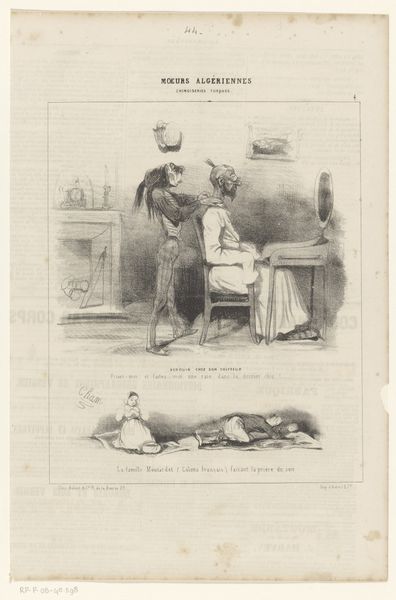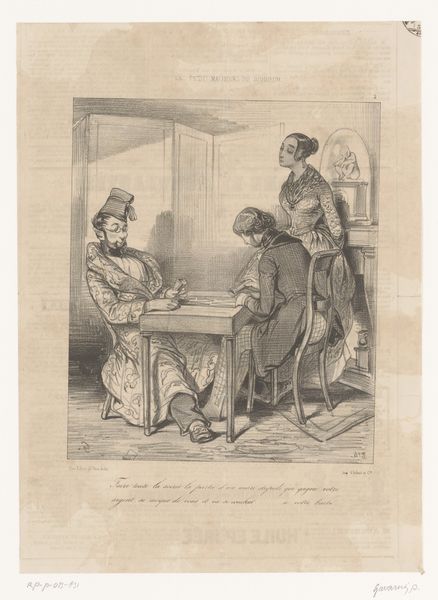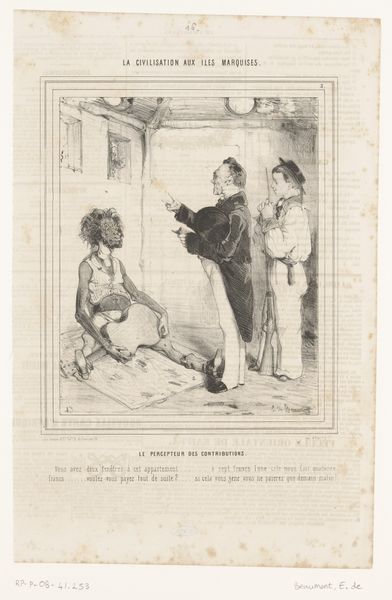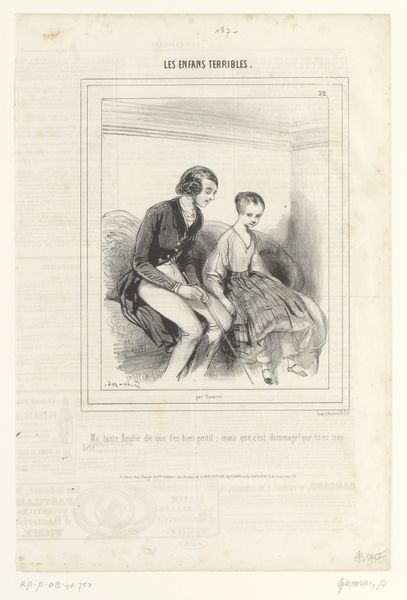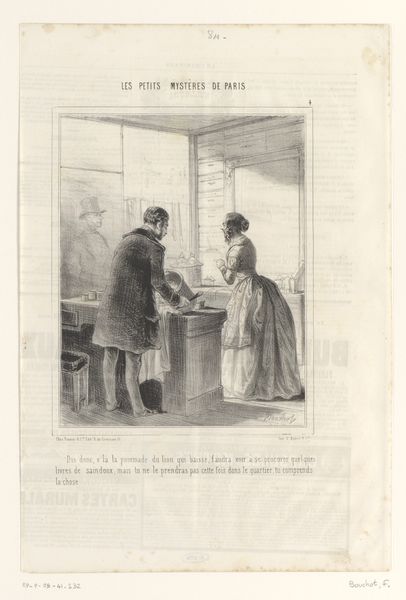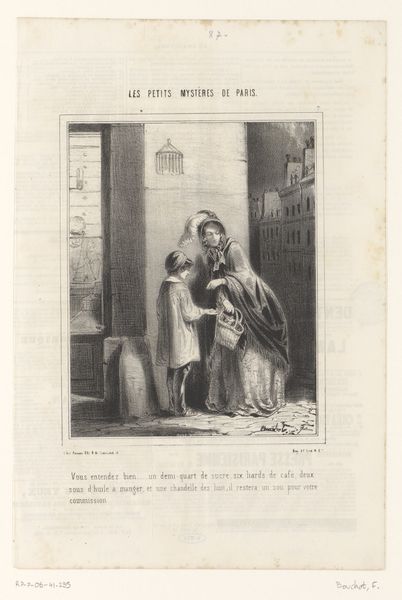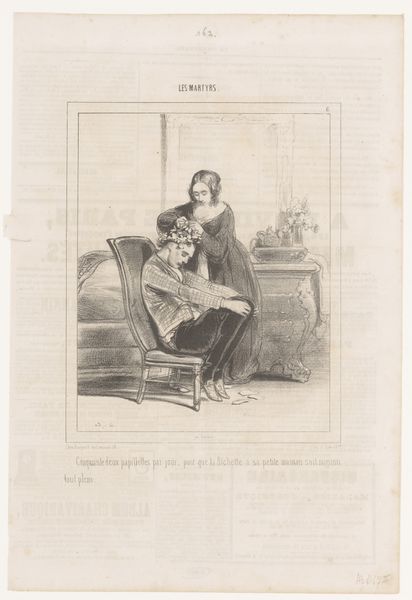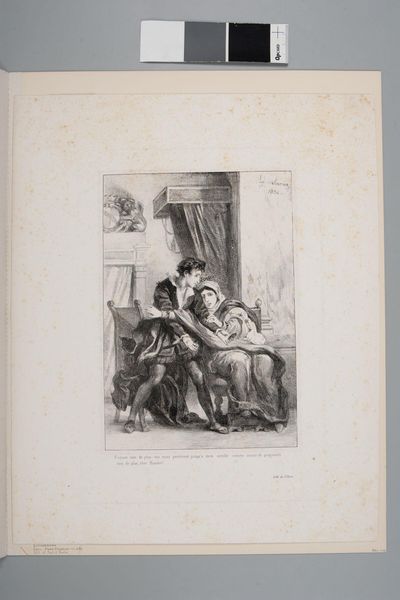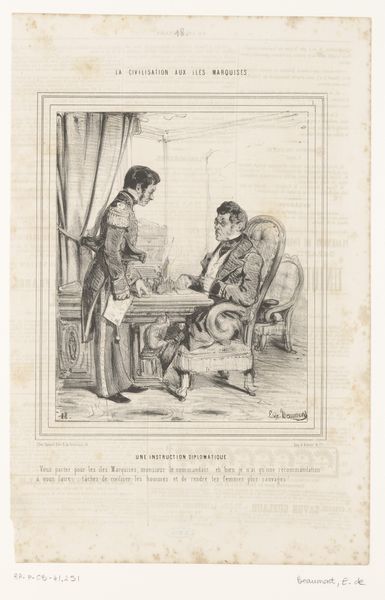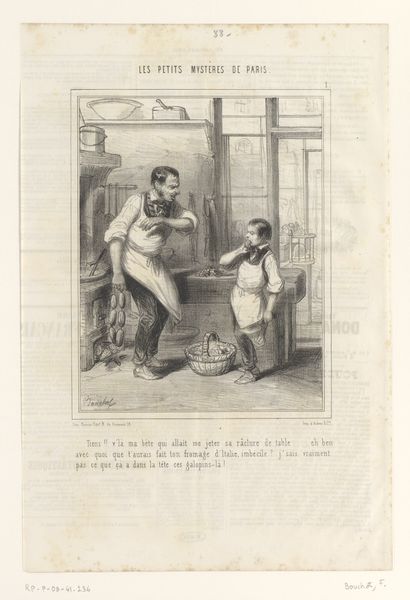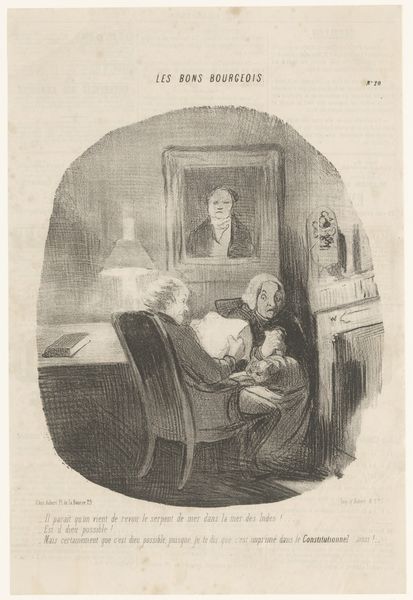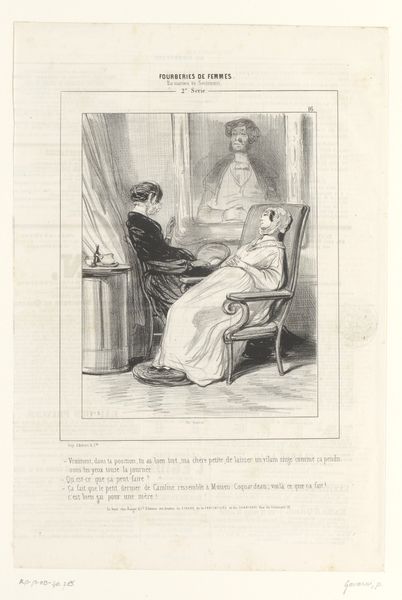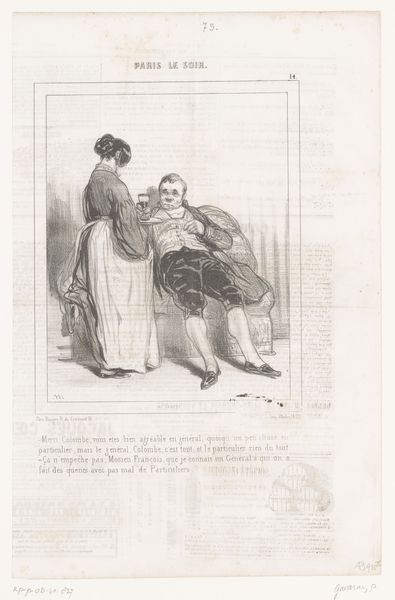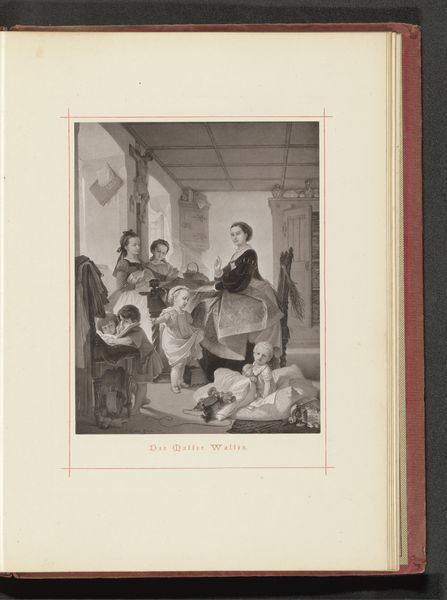
drawing, lithograph, print
#
drawing
#
narrative-art
#
lithograph
# print
#
romanticism
#
cityscape
#
genre-painting
Dimensions: height 362 mm, width 245 mm
Copyright: Rijks Museum: Open Domain
Frédéric Bouchot made this print, "Man and woman at a table in a restaurant" in the 1800s. Observe the screen in the background, a symbol of domestic privacy juxtaposed with the public setting of a Parisian restaurant. Such screens or room dividers have appeared throughout art history, from ancient Chinese art to the interiors of Dutch Masters, each time acting as a subtle marker of personal space within a larger world. In earlier artworks, these screens often bore ornate decorations or narrative scenes, effectively turning them into mobile galleries of personal taste and cultural values. Now, consider how the figures peeking through the screen's panels are not merely observers, but possibly participants in a veiled drama, emphasizing a hidden life beyond what is immediately visible. This recalls the psychological interplay between concealment and revelation, a common thread in the human experience across centuries, and a motif that continues to resonate in modern art and cinema.
Comments
No comments
Be the first to comment and join the conversation on the ultimate creative platform.
